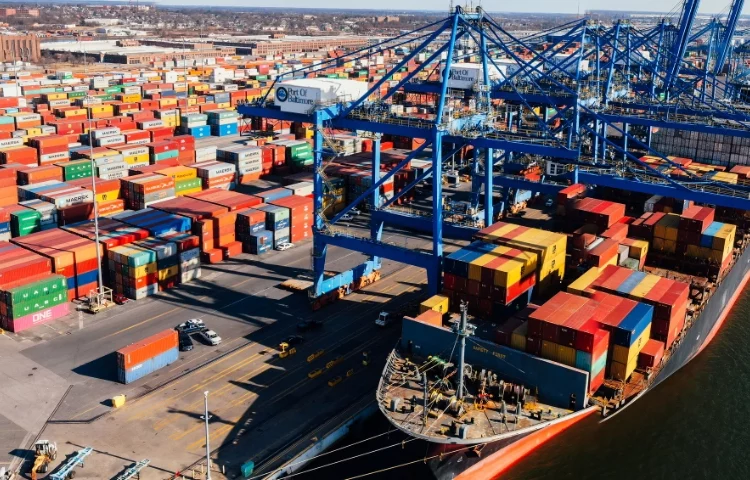The Nigerian Shippers Council (NSC), on Wednesday, said the low adoption of modern technology in port operations is hindering operational efficiency and transparency.
Speaking at the 2024 Annual Seminar for Maritime Journalists, titled, ‘the Nigerian Shippers’ Council in Transition: Issues, Prospects, Challenges’, held in Lagos, the executive secretary, Nigerian Shippers’ Council (NSC), Barr. Pius Akutah, disclosed that persistent acts of lawlessness, cargo theft at the nation’s seaports negatively affect port operations and increase the cost of shipping.
Akutah who was represented by the agency’s director of Special Duties, Mustapha Zubairu, stated that challenges such as inadequate internet infrastructure, resistance to change among stakeholders, and lack of skilled personnel in the tech field hamper progress at the seaports.
“The adoption of modern technology in port operations is still relatively low, hindering operational efficiency and transparency. The NSC is tasked with promoting the digitalization of port processes, but challenges such as inadequate internet infrastructure, resistance to change among stakeholders, and a lack of skilled personnel in the tech field hamper progress in this area.
“Security challenges, including cargo theft, piracy, and general lawlessness, persist at Nigerian ports. These security risks negatively affect port operations and increase the cost of shipping. Additionally, corruption among port officials and stakeholders remains a problem, with illegal fees, bribery, and rent-seeking behaviour complicating the NSC’s regulatory functions and undermining reforms,” the Shippers’ Council boss stated.
Akutah further noted that Nigerian seaports are still plagued by poor infrastructure, outdated cargo handling equipment, inadequate road networks and insufficient storage facilities.
He stated that the Council’s inability to drive reforms and improve port operations is constrained by the broader infrastructural deficiencies within the port system.
“High tariffs, port charges, and inefficiencies at the ports increase the cost of doing business in Nigeria. While the NSC is responsible for overseeing tariff structures and pricing, it faces the challenge of balancing the interests of port operators, shippers, and the government while trying to make the ports competitive.”
“Reducing costs for importers and exporters while ensuring sustainable revenue generation for port authorities remains a delicate balancing act. Nigerian ports continue to struggle with congestion and inefficiency, despite efforts to streamline operations.
“Although the NSC is not directly responsible for managing traffic, it is charged with improving port competitiveness, which includes addressing delays, demurrage charges, and other inefficiencies that arise from congestion. The Council is working closely with terminal operators and other agencies to mitigate these issues,” he assured.
Speaking earlier, the convener of the training, Sesan Onileimo, explained that the rating of the seaport on the ease of doing business index in the ports is low.
He, however, stated that with the Nigerian Shipping and Port Economic Regulatory Agency Bill 2023, the new law will ensure that there is fairness and competition in pricing of services, while providers and users enjoy a new experience at the seaports.
“We commend the determination of the Management of the NSC for giving the Bill all that is required to come to life. The bold move to regenerate the NSC is the motive behind the zeal. No doubt, the Bill is envisaged to be a game-changer in the Nigerian shipping and port-related businesses.”
“Currently, the rating of ease of doing business in the ports is low. It is anticipated that the new law will ensure that there is fairness and competition in pricing of services, while providers and users enjoy a new experience. Certainly, its passage and eventually signing into law by the President will usher-in a new dispensation that is yet being imagined,” Onileimo stated.





